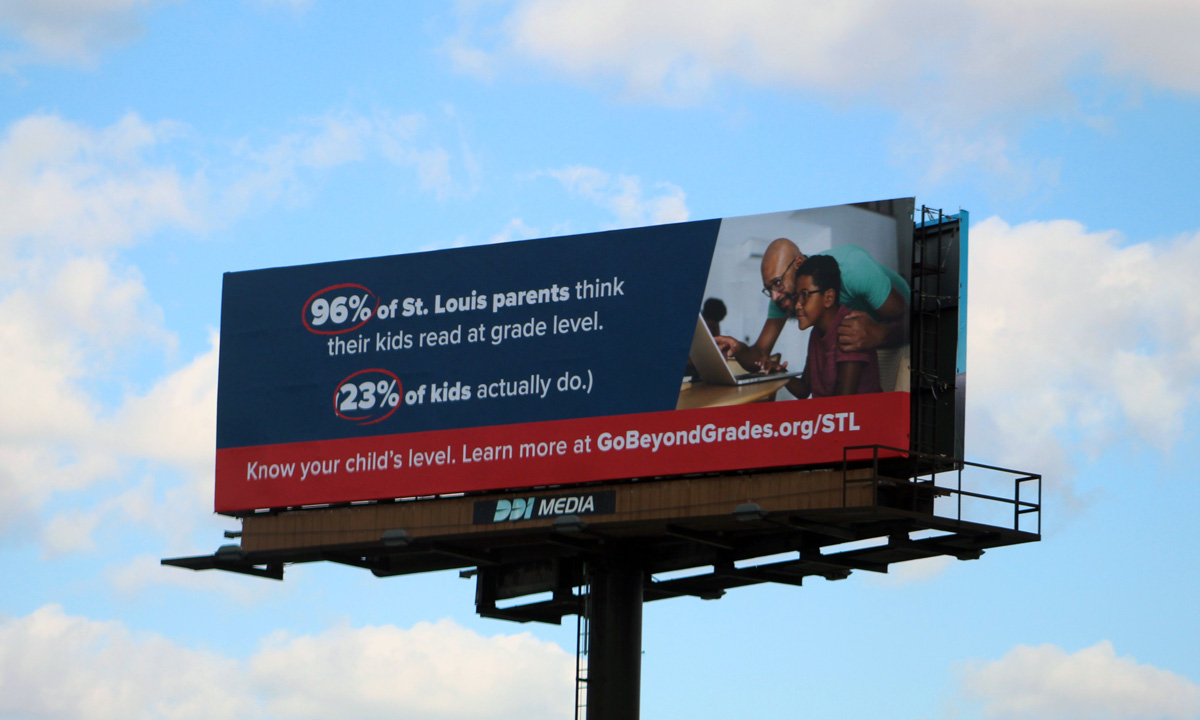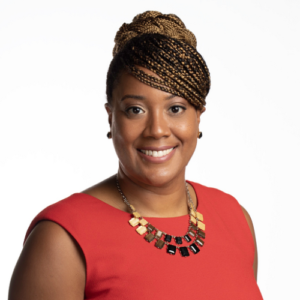Bridging the Parent Perception-Child Performance Gap in St. Louis Schools
Among new group’s goals: Help St. Louis parents respond to state-mandated letters telling them their child is struggling in reading.

Get stories like this delivered straight to your inbox. Sign up for The 74 Newsletter
Ceira Ross-Porter didn’t realize her son couldn’t read until he began second grade this fall.
While her son, Roy, would ace spelling tests at the Leadership School in St. Louis, Missouri, his mom said, he would cry while doing homework because he couldn’t read any of the questions.
Ross-Porter’s realization solidified when she received a letter in the mail from his public charter school — part of a new statewide literacy awareness campaign — informing her that Roy had a reading deficiency.
“He made it through kindergarten and first grade and nobody said he was behind or he needed tutoring or extra help,” Ross-Porter said. “I don’t know where the disconnect is.”
Ross-Porter is like many parents around the St. Louis area who are now receiving the same letters in the mail, explaining that their child scored below grade level in reading.
The letters are coming as a surprise for some who are unaware of how their child is really doing in school, said Rachel Powers, a partner with The Opportunity Trust, a St. Louis education foundation.

“Parents really just don’t know. Everyone thinks, ‘My kid is good. My kid is fine’,” Powers said. “Or maybe they’re like, ‘Something seems off, but I don’t really know what to do about it. The report card seems OK, but they are struggling with their homework.’”
The Opportunity Trust and Learning Heroes, a national parent advocacy organization, announced on Oct. 24 the launch of Go Beyond Grades STL. It’s an awareness campaign for Missouri families in the City of St. Louis and St. Louis County, they said,to improve the gap between the perception and reality of their child’s progress in the classroom.
Go Beyond Grades STL is partnering with St. Louis nonprofits to connect with parents in order to help them understand their child’s achievement scores and teach them how to communicate with schools, along with offering them other resources. It’s also working with schools to improve relationships between teachers and families.
The campaign is part of a national Go Beyond Grades movement organized earlier this year by Learning Heroes, in New York City, Chicago, Washington, D.C., Houston, Boston and Sacramento.
Learning Heroes representative David Park said the organization created the national Go Beyond Grades campaign because of the increasing number of parents who are unaware of how their child is doing at school.
“There’s a significant amount of parents who believe their child is fine — and it’s not their fault,” Park said. “Eighty percent of students nationally come home with a B or above on their report card.”
In the St. Louis area, that number is nearly 90%, according to an August survey commissioned by Learning Heroes and conducted by Edge Research, a Virginia-based research firm. The survey found that 96% of St. Louis parents believed their child was at grade level in reading and 94% thought their child was at grade level in math.
Most students aren’t even close, Powers said.
St. Louis has been hit especially hard by the pandemic, which burdened elementary and middle schoolers with some of the worst learning damage suffered by any students in the United States, recent research shows.
In 2022, 42% of students in the City of St. Louis and St. Louis County were at grade level for reading, while 36% were at grade level for math, according to The Opportunity Trust.
In just the City of St. Louis, the numbers drop to 23% for reading and 17% for math.

“Parent-teacher conferences are 15 minutes (long),” Park said. “What we’re pushing more than anything is ongoing communication with the child’s teacher — setting up a learning plan and touching base regularly — that’s what teachers say is the most important.”
Ross-Porter said that would be essential for her. The second-grade mom said she can’t understand Roy’s achievement scores and what they mean for her son’s progress. She said she doesn’t even know what the school letter about Roy’s reading scores really means.
Mary LaPak, a representative for Rockwood School District, the largest public school system in the St. Louis area, said while the district hasn’t worked with Go Beyond Grades STL, it values a trusting relationship between parents and teachers.
“We encourage transparency and recognize that open communication is vital between parents and Rockwood staff in order to support all students,” LaPak said in an email. “Rockwood parents are essential partners and allies in the education of our children.”
Powers said parent-teacher communication about the recent reading letters is one of the main reasons The Opportunity Trust launched Go Beyond Grades in the St. Louis area. The letters are part of a new literacy law passed earlier this year in Missouri.
The legislative piece was included in the Missouri Read, Lead, Exceed initiative, created by the state education department. It’s a comprehensive plan that aims to increase evidence-based literacy instruction, a part of the science of reading, in order to improve the state’s low reading scores.
The law requires schools to identify students who are reading at one or more grade levels below what they should be. If a student is found with a reading deficiency, parents are sent a reading success plan, which provides a set of goals and skills needed in order for the child to reach their grade level.
“We wanted to get the word out about what that law means for families, what it means for schools, how families and teachers and educators connect and work together to really address this issue that is happening,” Powers said.
Powers said staff with Go Beyond Grades have been contacting St. Louis area schools to pinpoint when letters will be sent and learn how they plan on implementing the reading success plans. They also have been talking to parents about what they can expect if they receive a letter and what resources they should seek out to help their child.
“We want to make sure parents don’t just get a letter at their house and then they go on about their business,” Powers said. “And then it kind of gets lost in the shuffle. Like, no, this is really important, this really means something if you’re getting this letter, this is really important for your family.”
When parents are involved in their children’s schooling, students show higher academic achievement, school engagement and motivation, according to a 2019 American Psychological Association review of 448 independent studies on parent involvement.
High levels of family engagement also helped decrease chronic absenteeism for students before the pandemic, according to research published earlier this month by Learning Heroes and other partners.

Ross-Porter said her involvement in Go Beyond Grades STL prepared her for October parent-teacher conferences. She and Powers worked together to decipher Roy’s test scores so she could arrive armed with a long list of questions to ask Roy’s teacher.
“The questions that she gave me were able to get me better answers, just because of the way the questions are worded,” Ross-Porter said.
Powers said she hopes Go Beyond Grades STL can one day go beyond the boundaries of the St. Louis area and help parents across Missouri. For now, billboards are going up around the city and county to alert families to the importance of being involved in their child’s education.
“How do we make sure folks are clear about what to expect from their schools and how to partner with their educators to really support their children? Because at the end of the day, that’s what we’re fighting for,” Powers said. “What we’re trying to really support is our kids, so they can have a strong future with the basics of reading and math.”
Disclosure: The Opportunity Trust provides financial support to The 74. The Bill and Melinda Gates Foundation and the Carnegie Corporation of New York provide financial support to Learning Heroes and The 74.
Get stories like these delivered straight to your inbox. Sign up for The 74 Newsletter

;)
